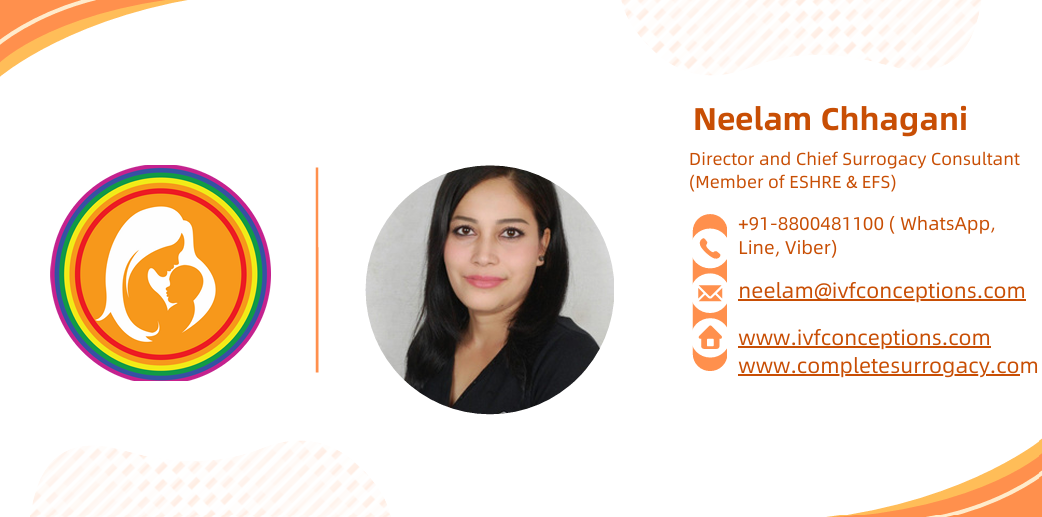How to Become a Surrogate- Your Guide to the Surrogacy Process

Becoming a surrogate is a big decision but can be rewarding. It helps intended parents (IPs) make their dream of a family come true. This guide will explain each step for you, as an aspiring surrogate. It goes from self-reflection and learning to applying, getting medical and psychological checks, finding IPs, the legal side and contracts, the pregnancy journey, and after-birth care. You’ll have all the info you need to decide if surrogacy is right for you.
Doing traditional surrogacy or gestational surrogacy is your choice. You will learn about each type, the benefits of being a surrogate, and what you should know about the law and the process. This includes how finances work and the vital role of building relationships and support during your surrogacy.
Key Takeaways
- Surrogacy is a transformative experience that allows intended parents to fulfill their dream of having a family.
- The guide covers the step-by-step process of becoming a surrogate, including self-reflection, eligibility requirements, legal considerations, and the surrogacy journey.
- Understanding the different types of surrogacy (traditional and gestational) and the benefits of becoming a surrogate is crucial.
- Building strong relationships and securing emotional, psychological, and financial support are key to a successful surrogacy experience.
- Careful research, preparation, and guidance are essential for making an informed decision about becoming a surrogate.
Get in touch for FREE SURROGACY CONSULTING:
Mobile: +91-8800481100 ( WhatsApp, Line, Viber)
Email: neelam@ivfconceptions.com
Understanding Gestational Surrogacy Process
Surrogacy is both intricate and diverse, providing the chance for parents to have a child. It includes traditional and gestational types. In traditional surrogacy, a woman carries a child made from her egg and the father’s sperm. However, in gestational surrogacy, the baby is not related to the woman who carries it.
Types of Surrogacy
Traditional Surrogacy
Traditional surrogacy involves the surrogate mother’s egg and the father’s sperm. The process uses artificial insemination. This way, the surrogate is biologically linked to the baby.
Gestational Surrogacy
On the flip side, gestational surrogacy is more complex. It uses in vitro fertilization (IVF). A baby is born without a genetic link to the woman who carries it. The egg and sperm come from the intended parents or donors.
Additional Guides for Surrogate Mother:
Find a Surrogate Mother With or Without an Agency
In Which Country I Find Low-Cost Surrogate Mothers (in 2023)?
How can I Find a Surrogate Without Agency
What is the Age Limit for Surrogate Mothers
How Much Does Surrogacy Cost Using Family Member
How to Start the Gestational Surrogacy Process? A step-by-step guide for Beginners
How Much Does Surrogacy Cost? Everything You Need To Know (in 2023)

Benefits of Becoming a Surrogate
Being a surrogate is rewarding. It helps fulfill the dreams of parents who can’t conceive. Surrogates feel a deep sense of accomplishment and growth during this process.
| Benefit | Description |
| Helping Others | Surrogates deeply impact the lives of parents who can’t have children on their own. |
| Financial Compensation | In the UK, surrogates receive fair pay for the vital role they play in this process. |
| Personal Fulfillment | The act of helping others brings surrogates a profound sense of joy and empowerment. |
| Surrogacy Support Network | Surrogates and parents find lasting friendships and support through a dedicated community. |
How to Become a Surrogate- Key Factors to Consider
Start your surrogacy journey by doing some serious thinking and research. Prospective surrogates need to make sure they’re really ready for this big step. It’s key to talk it over with those who support you most.
- Self-Reflection and Research
Surrogacy is both deeply meaningful and filled with complexities. It requires an understanding of emotional and legal aspects. It’s smart to learn about the process, know the laws, and get advice from experts. This helps make a choice that fits your life and values.
- Assessing Eligibility and Health: surrogacy qualifications
Surrogates must meet certain requirements regarding age, health, and pregnancy history. They need to go through medical and mental health checks. This makes sure they’re ready for the demanding journey.
- Legal Considerations
The legal side of surrogacy is vital for everyone’s protection. Surrogates should talk to legal experts. This helps them understand their rights and the legal issues of the agreement, as well as any potential problems.
- Choosing a Surrogacy Agency or Path
You can pick a licensed surrogacy agency or go independent. Both have their pros and cons. Think hard about what matters most before you decide.
| Surrogacy Agency | Independent Surrogacy |
| Provides comprehensive support and guidance | Allows for more personalized experiences |
| Handles legal, medical, and logistical aspects | Requires more personal responsibility and research |
| Ensures compliance with relevant laws and regulations | May involve additional legal complexities |
| Typically offers higher compensation | May involve lower compensation |
How Does Surrogacy Work: Surrogacy Process
The surrogacy journey starts with matching a surrogate with the intended parents. The surrogate compiles a detailed profile about herself. This includes her background, reasons for being a surrogate, and what she hopes for. Then, there’s a meeting to see if both sides agree on important things like pay and shared responsibilities.
 Matching with Intended Parents
Matching with Intended Parents
Matching with the right parents is key for a good surrogacy partnership. This part is where everyone talks about what they want and need. It ensures the arrangement is right for everyone involved.
- Medical and Psychological Screening
After matching, the surrogate is checked out by doctors and therapists. They make sure she’s in good health, body and mind, for the task. They look at her medical history and give advice to help her through the journey.
- The Fertility Process
When the medical checks are cleared, the fertility treatment begins. This often involves IVF to create the embryo for the surrogate. The process is closely watched by the fertility clinic to make sure everything goes smoothly.
- Pregnancy and Prenatal Care
After the fertility treatment, the surrogate starts her pregnancy. She sees doctors regularly to check on the baby’s health. Any needed help or tests are done to keep the pregnancy on track.
- Delivery and Post-Delivery
The baby is born in the final part of the journey. The surrogates, parents, and doctors work together for a good birth. After that, they all deal with the legal and emotional parts of having the baby.
Surrogate Mother Process
Becoming a surrogate mother is a selfless and rewarding journey that allows you to help intended parents fulfill their dream of starting a family. However, it’s a decision that shouldn’t be taken lightly, as it involves emotional, physical, and legal considerations. In this blog post, we’ll explore the process, costs, factors to consider, and the pros and cons of becoming a surrogate mother.
- Understand the different types of surrogacy: Gestational surrogacy and traditional surrogacy.
- Meet the basic requirements: Most surrogacy agencies require surrogates to be between 21 and 40 years old, have given birth to at least one child, and meet specific health criteria.
- Apply with a surrogacy agency: Research reputable agencies and submit your application, which typically includes a detailed questionnaire, medical records, and background checks.
- Undergo screening: You’ll go through psychological evaluations, medical screenings, and legal consultations to ensure you’re physically and emotionally prepared for the surrogacy journey.
- Match with intended parents: The agency will match you with intended parents based on shared values, preferences, and compatibility.
- Begin the surrogacy process: Once matched, you’ll undergo fertility treatments and embryo transfer, followed by prenatal care and delivery.
Cost for Surrogate Mother: Plan your surrogacy budget
While surrogate mothers don’t typically pay for the surrogacy process itself, there are some potential costs to consider:
| Cost | Description |
| Lost wages | If your surrogacy requires you to take time off work. |
| Travel expenses | For medical appointments or the delivery if you live far from the intended parents. |
| Childcare costs | For your existing children during appointments or the postpartum period. |

Factors to Consider:
- Legal implications: Understand the legal contracts and ensure your rights and responsibilities are clearly defined.
- Emotional preparedness: Surrogacy can be an emotionally challenging journey, and you should be prepared for the potential emotional toll.
- Support system: Having a strong support network of family and friends is crucial for navigating the surrogacy process.
- Physical demands: Pregnancy and childbirth come with physical challenges, and you should be prepared for the associated risks and discomforts.
Compensation and Expenses for Surrogacy
In the UK, when surrogates are compensated, it’s for a lot of things. This includes medical costs, lost wages, and the costs of traveling. All these details need to be talked about with the intended parents beforehand. Everything must be clear and agreed on from the start.
- Financial Planning
Surrogates need to plan their finances carefully. This means getting advice from financial experts. It’s also important to budget for any income that might be lost during the pregnancy. Make sure you have the right insurance to cover you and the intended parents.
| Expense Category | Typical Coverage |
| Medical Costs | All medical expenses related to the surrogacy pregnancy, including prenatal care, the embryo transfer procedure, and delivery |
| Lost Wages | Compensation for any time off work due to the surrogacy process, such as medical appointments, the embryo transfer, and postpartum recovery |
| Travel Expenses | Reimbursement for any necessary travel, such as trips to the fertility clinic or medical appointments |
| Legal Fees | Coverage for the surrogate’s legal representation to ensure the surrogacy contract is fair and legally binding |
| Counseling and Support | Provision for any necessary psychological or emotional support services throughout the surrogacy process |
- Building Relationships and Support
Starting a surrogacy journey is both physical and emotional. It’s important to build strong relationships and find the support you need. This helps everyone involved have a positive experience.
- Developing Trust with Intended Parents
It’s key to build trust from the start with the parents you’re helping. Talk openly about what you all expect, your boundaries, and how you want to stay in touch. Checking in regularly over video or in person helps keep this trust strong.
- Surrogacy Support Groups
Joining a group for support in surrogacy can really help. These groups offer a safe space to meet other surrogates, share stories, and get emotional support. It’s a place where people understand what you’re going through.
- Emotional and Psychological Support
It’s also vital to look after your own emotions and mind. A mental health professional who knows about surrogacy can be very helpful. They guide you through all the feelings and offer ways to cope.
Focusing on support, strong relationships, and your own well-being makes the surrogacy journey smoother and more rewarding.
Related surrogacy Costs guides:
What is the average surrogacy cost?
How much does surrogacy cost in Ukraine?
How much does surrogacy cost in Georgia?
How much does surrogacy cost in India?
What is the Surrogacy Cost in Colombia?
What is Surrogacy cost in Mexico?
What is surrogacy cost with family members?
Pros and Cons of Becoming a Surrogate Mother:
 Pros:
Pros:
- Helping intended parents create or grow their family
- Financial compensation (if applicable)
- Personal fulfillment and sense of purpose
Cons:
- Physical demands and potential health risks of pregnancy
- Emotional challenges and potential attachment to the child
- Legal complexities and potential disputes
- Potential impact on your existing family dynamics
Becoming a surrogate mother is a deeply personal decision that requires careful consideration of all aspects involved. It’s essential to thoroughly research and work with reputable surrogacy professionals to ensure a safe, ethical, and legally secure journey for all parties involved.
Conclusion
Starting your surrogacy journey? Every experience is special and unique. There is no one formula for success. You might find both happiness and hard times. Yet, with the right support and information, you will make choices that suit you best.
Surrogacy is not just a business deal. It’s a life-changing journey that brings joy to others. You help parents achieve their dream of a family. Your kindness shines through this selfless act.
To be a surrogate, think carefully. You need to know the law and have good support. This guide helps you through the process, making sure you help in a positive way. You’re not walking this path alone. Reach out to support groups, doctors, and lawyers for advice along the journey.
If you’d like to learn more about IVF, Egg Donation, or surrogacy Consulting services globally, check out the rest of our website at IVF Conceptions. We offer legally secure and affordable surrogacy consulting services for FREE.
Our team has over 14 years of experience facilitating surrogacy arrangements, egg donation, and serving as an advocacy resource for infertile couples and LGBTQ individuals seeking to build families. Till now we have helped and supported thousands of the intended parents with their family-building journey, and we can help you as well. Happy to share the references from the past IPs if needed.
Contact us:
Mobile: +91-8800481100 ( WhatsApp, Line, Viber)
Email: neelam@ivfconceptions.com
Web: www.completesurrogacy.com
FAQ For How to Become a Surrogate
 What are the two main types of surrogacy arrangements?
What are the two main types of surrogacy arrangements?
There are two main types of surrogacy. One is traditional surrogacy. Here, the surrogate uses her own egg. The other is gestational surrogacy. In this kind, the surrogate carries an embryo from in vitro fertilization (IVF).
What should aspiring surrogates consider before embarking on the surrogacy journey?
Before deciding to become a surrogate, think about your preparedness. Also, talk with your loved ones about it. Learn about the process, the law, and the possible risks.
How does the matching process work between surrogates and intended parents?
To start the matching process, a surrogate makes a profile. Then there’s a meet-up to talk about key points. These include money, costs, and what’s expected from each party.
How are surrogates compensated, and what expenses are they expected to cover?
In the UK, surrogates only get paid for their reasonable expenses. The costs and pay, including medical bills, are stated in the surrogacy contract. It’s smart to have a lawyer check this document.
Why is it important to build strong relationships and secure support throughout the surrogacy journey?
It’s crucial to forge strong bonds and find support during surrogacy. Doing so can lower dangers. It also makes the experience great for everyone involved.
Source Links
- https://www.gov.uk/government/publications/having-a-child-through-surrogacy/the-surrogacy-pathway-surrogacy-and-the-legal-process-for-intended-parents-and-surrogates-in-england-and-wales
- https://www.adorethemparenting.com/understanding-surrogacy-an-11-step-guide-for-potential-surrogates/
- https://reproductivepossibilities.com/blog/the-surrogacy-process-a-step-by-step-guide-for-aspiring-surrogates/

 Matching with Intended Parents
Matching with Intended Parents